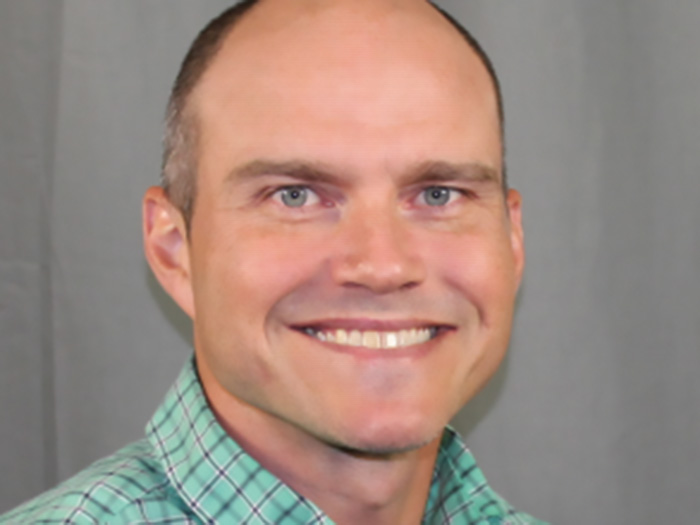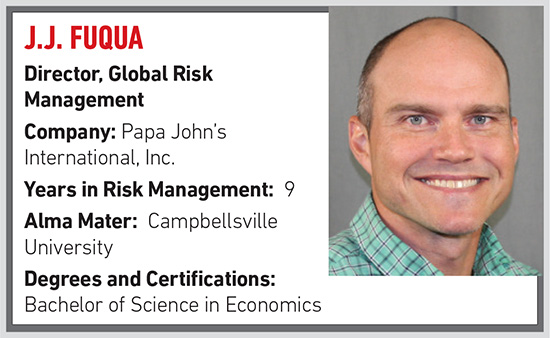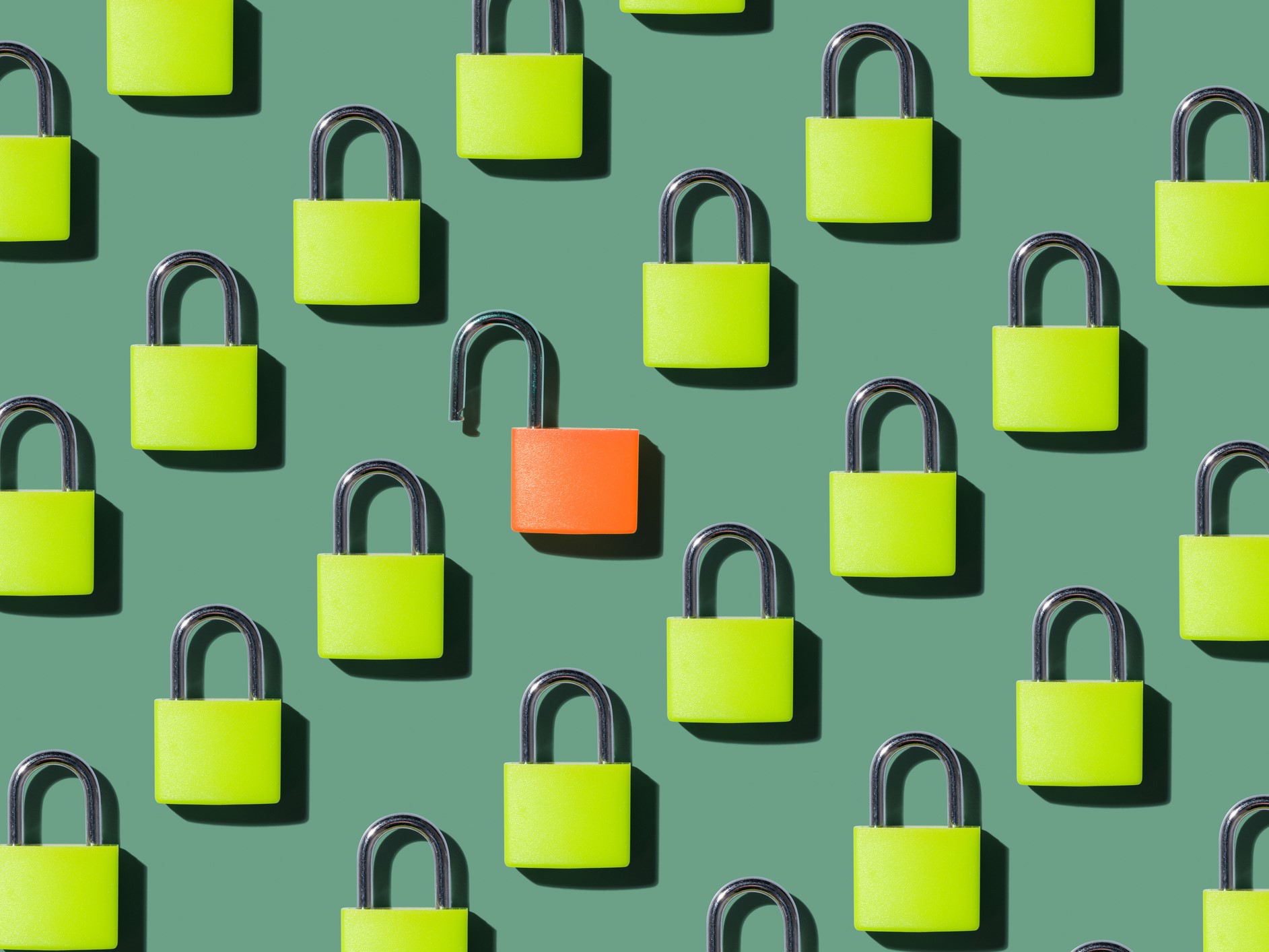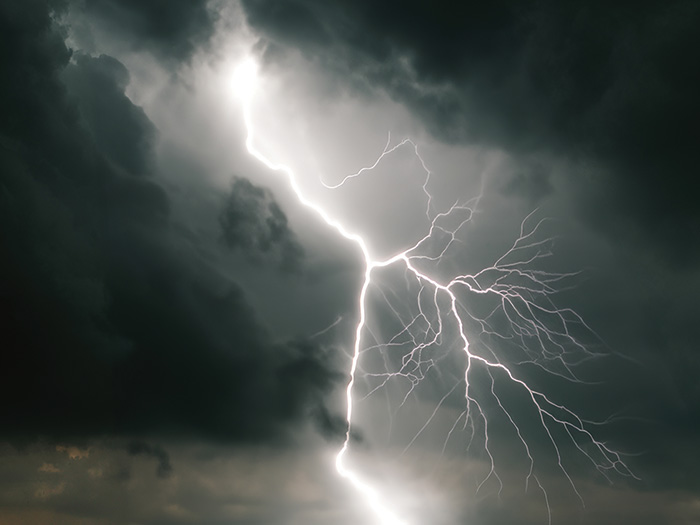Papa John’s Director of Global Risk Management Shares Insights on His Career and What the Industry Is Doing Right


R&I: What was your first job?
I was a busboy in a bar back at 14. That was my very first job. My first job after college was as a compliance specialist for a local bank. But I did want to mention, I actually delivered pizza for Papa John’s all throughout college. So that was a lot of fun. It was my favorite pizza and I figured if I get free pizza once in a while, it might as well be Papa John’s.
R&I: How did you come to your current position?
I like to think of luck as being when preparation meets opportunity. At least my football coach used to say that. I’ve tried to apply that mindset throughout my career.
I took on a variety of projects that offered unique challenges, experiences, and better prepared me for future opportunities. One of the opportunities was eventually as risk manager for a large inland marine transportation company here in the Louisville area.
I developed a strong rapport with their risk and legal teams through some auditing and earned the support of our senior leadership after a lot of successful complex projects as we were going through a private equity transaction. But, at the end of the day, it was mostly just not being afraid to dive into anything and looking at challenges and projects as opportunities to build experience.
That eventually led to some good opportunities in risk management, even though I had no real background in that. After about seven years there, I just learned so much. Marine risk is such a unique area, and I love the industry, but here in the Louisville area, there are limited growth opportunities from a marine risk standpoint, and we love the Louisville area and didn’t want to leave.
I was reluctantly weighing opportunities in other cities in order to grow beyond where I’d been. About that time, Papa John’s called me up. They’re one of the few brands I’ve always been loyal to, and it was just kind of a dream come true in a lot of ways. So, not to sound cheesy — which is my pizza dad joke there — but I felt it was the professional opportunity that I’d really been working on since delivering for them.
R&I: What’s been the biggest change in risk management and the insurance industry since you’ve been in it?
Oh wow, there’s a lot, especially recently with these cyber events. They’re all very high profile. Then we’re obviously still reeling from the pandemic. There are probably more thoughtful answers to this question, but personally, it’s an elephant in the room and I’m going to point to it. It’s the substantial premium increases across almost all lines of coverage in recent years.
I understand that the rising premiums are a symptom of a problem, and I think the root cause basically boils down to loss control. There are a lot of considerations that fall into loss control. I think people immediately think of safety programs, which yes that’s the bulk of it, but it’s also legal costs, jury verdicts, there’s just so much more that goes into real loss control.
We’ve made great strides as organizations in how we have put loss control front and center. I think with risk management, having a seat at the table is a big change from previous years, especially within ERM, crisis management, business continuity, disaster recovery and business resilience.
And at least in my role here at Papa John’s, just trying to help around loss prevention as well. Preventing the loss is obviously better than controlling the loss after it happens.
I think we’re all from an enterprise standpoint, making great strides, and I hope that gives more of an opportunity for us to really come together as an industry more so, and figure out better ways that we can pull our efforts together to attack some loss control. I don’t think we’re losing a competitive edge if we’re working together to improve loss control.
R&I: What’s the biggest challenge you’ve faced in your career?
My two years at Papa John’s, but I’ve loved it. I inherited a great team, a solid program. We have valuable partners, but we needed to calm the waters a bit when I first got here. And I needed to get my arms around the program.
Fortunately, while I was doing that, I had a pretty good idea that the program needed to substantially change. I knew that much. So, I started partnering with some folks to simultaneously lay groundwork for innovative structure changes aimed at improving the sustainability of the program through this hardening market.
We left no stone unturned. We pursued several concurrent paths and considered all kinds of structures to challenge our previous way of thinking and tested long-standing partnerships.
But after some really exceptional effort in a pretty suspenseful renewal process, we landed on a custom option that I didn’t expect to be available for at least another year.
I’m so proud of the new teammates and our partners for delivering it as a fantastic result. It probably would have been the best results of my career, but the fact that we all delivered it in the thick of a global pandemic was just pretty amazing.
R&I: Who has been your mentor(s) and why?
Well, I’ve been blessed with so many to consider. And then thankfully, that continues even today at Papa John’s, but I have to mention my dad. He raised me as a single parent and set me up to be the first in our family to earn a college degree. So that’s huge.
Professionally, I probably learned the most while I was starting as a risk manager under Dawn Landry. She was ACBL’s general counsel (barging company). She blazed her own path as a strong female leader in that male-dominated industry. It just really set an example for delivering success, regardless of whatever adversity you’re facing. I just knew that to measure up to her expectations while learning to anticipate what she needed done while ultimately earning her trust meant that you must be doing a good job.
I’ve also worked with so many talented brokers. My relationships have been with Marsh to this point.
Danelle Heathman was on the marine side back when I first started. She showed me the ropes of risk management. I think she’s at Lockton now, but she’s a really special lady.
And then Brian O’Neill, he was their marine underwriter for our account as well at Marsh. And he really helped me enhance my effectiveness as a risk manager by teaching me how to apply leverage, how the market works, how the partnerships work, what was important, what wasn’t, and how to really be the best advocate I could for my program.
R&I: What is the risk management community doing right?
There’s always room for improvement. I think we’re doing a lot right, though. Most importantly, we’re supporting innovation and loss engineering to keep our teammates, customers, and communities safer. We’re making progress and broadening our influence beyond claims administration and policy placement by improving our cross-functionality and skillsets within our respective organizations.
Policy and claims are our bread and butter obviously, but we have to be able to lead teams from everything around crisis tabletops, new hiring standards, risk transfer, claims, root cause analysis, data analysis, and around all kinds of cyber breach scenarios. I was in the thick of our pandemic response in a lot of ways and ensuring our franchisees have resources they needed as well as they dealt with supply chain disruptions, or supporting DEI initiatives, the list really goes on and on.
We have to be prepared and equipped to add value in all of those things to help our teammates move forward. It’s a great time to be in risk management, and I think as these issues come to the forefront, our future’s bright.
R&I: What could the risk management community be doing a better job of?
Well, quite a bit, I think, but to keep it brief, and it’s kind of a pet peeve of mine, I’m sort of a numbers guy with some auditing and finance accounting background. But I’d like better data analysis that enables us to have more effective predictive modeling in order to support loss prevention initiatives.
The data exists; we just need to harness it. I’d say that’s one thing that I feel like is right there. It could add a lot of value, and we need to find a way to better harness that. That kind of speaks back to us coming together more as an industry to some degree. We need to share information, and share ideas that really can move the whole industry forward.
Sometimes we said at the barge company; a rising tide lifts all vessels. Hopefully, we can start moving in that direction.
R&I: How would you say technology has impacted the risk management profession?
Well, it’s hard to measure, and I know I just got on data analytics as something we need to do better, but there’s no doubt it’s vastly improved.
Data and analytics have obviously improved, and many companies are finding trends to reduce future losses that they otherwise could not have known. You hear some good stories about that on a regular basis. I’m really excited about technology that enables behavior changes, particularly in driving. Obviously, we’re a delivery company, but that’s one of the largest exposures out there across the country.
R&I: What risks should the retail and food service sectors be prepared for 2021?
The routine risks are obviously still there, but to kind of step out from that a bit, I think we need to focus more on business resilience and preparedness. I think it’s kind of easy to say that with the pandemic, given what’s been going on. There’s so much more than that though such as cyber vulnerabilities and supply chain disruptions. Then I think with any new presidential administration, you need to remain cognizant of how their initiatives might impact your exposures and just be prepared to adjust accordingly.
R&I: What’s your favorite book or movie?
It’s tough to pick one, but I have to say Braveheart. I just love an individual hero fighting for the freedom of others. It’s a good story. And I also really enjoy the Pirates of the Caribbean movies with my family or anything Disney.
R&I: What is your favorite drink?
Well, it depends on the situation. You can’t go wrong with water, but being in Kentucky, though, an Old Fashioned usually does the trick. We have a lot of really good local breweries here as well.
R&I: What have you accomplished that you are proudest of?
Well, I’ve managed to not only get my wife to marry me, but she stuck with me for almost 17 years now. We both have pretty demanding careers, and we’re somehow balancing those along with raising two just fantastic kids. That’s obviously what I’m most proud of.
Professionally speaking, I’d really say it’s the relationships I’ve been able to build and maintain over the years. I’m not always able to deliver positive news, but I try to be fair, honest, and maintain mutual respect regardless of who I’m interacting with. I’ve had nothing but really positive experiences with other people in over 20 years. I know not everyone can say that.
R&I: What is the riskiest activity you’ve ever engaged in?
Well, I won’t talk about everything my buddies and I did during high school and college, but it’s all pretty typical stupid stuff, I guess. Not to mention some of the construction jobs we worked. I know you probably have some construction risk managers that might read this and can appreciate that.
I just recently came back from our first-ever guys trip. I skied the Rockies, and I’ve only been skiing once before, which was probably 20 years ago.
So, of course, I went straight to the top of the mountain with my buddies, and I was a little nervous right off the bat. I did eventually make it back down to the bottom of the mountain and avoided any major injuries or hurting anyone else.
We like to call those near misses in our industry. I had a lot of near-misses, and I took a half-day lesson the next day. And then I was able to enjoy some of the green and blue slopes for the rest of the trip, which was everything I hoped for. It was a bucket list trip. &










